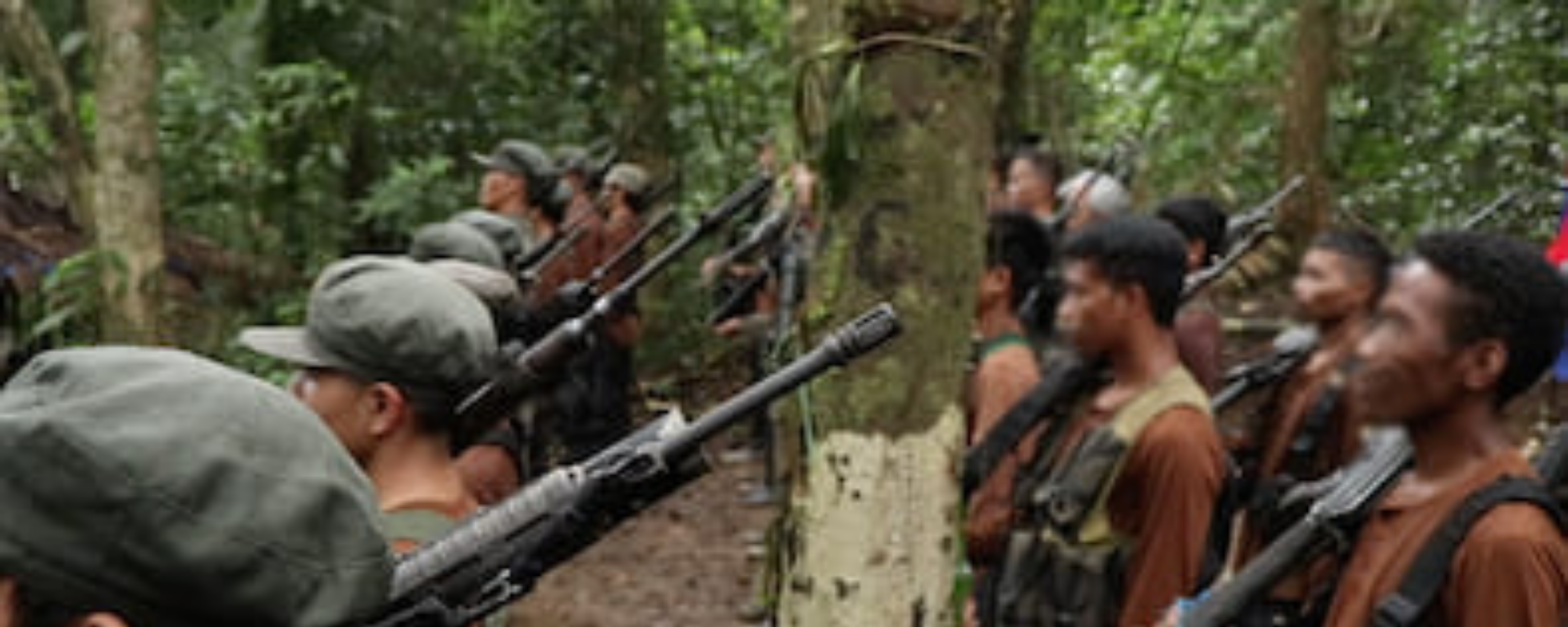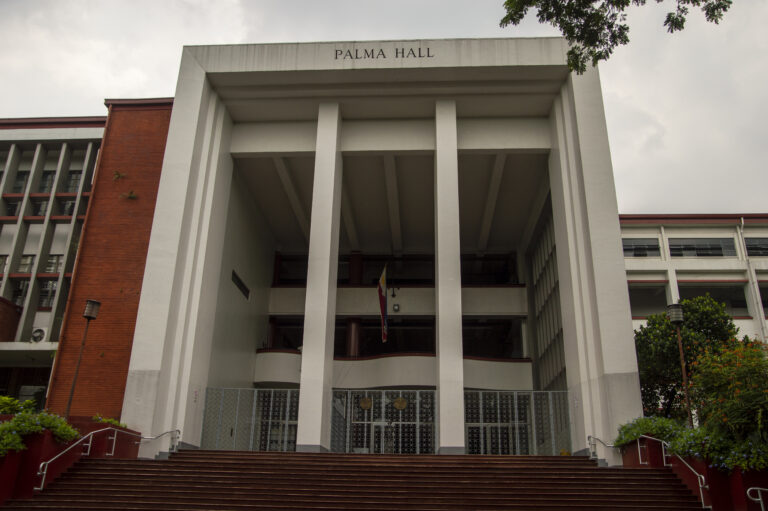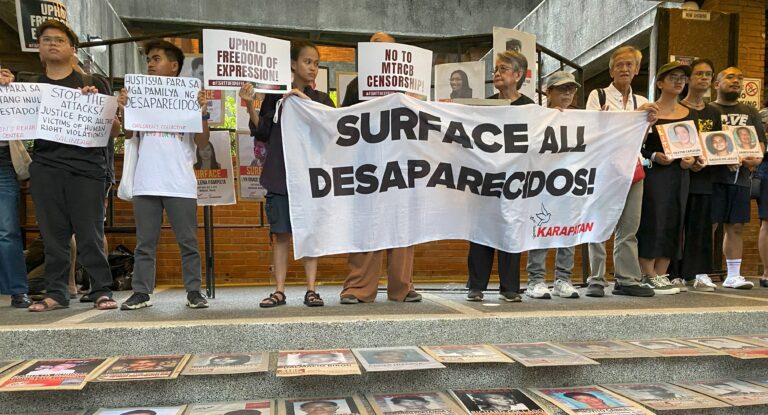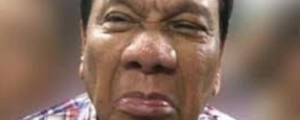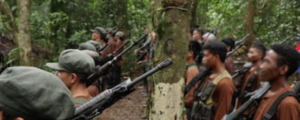
Today, the New People’s Army (NPA) is celebrating its 53rd anniversary since its establishment on March 29, 1969. The state brands them as “terrorists” while they say they are revolutionaries and the Duterte administration is the real terrorist. The question of armed struggle remains to be an important question in understanding Philippine society and politics, especially in the context of McCarthyite red-tagging and massacres and the worsening political and economic crisis.
Our college has been a persistent victim of state-sponsored red-tagging and the culture of impunity that perpetuates it. During the pandemic, seven major incidents of state-sponsored red-tagging and threats have been reported, including attacks against this publication by the NTF-ELCAC. As the revolutionary Lenin said, “there can be no ‘impartial’ social science in a society based on class struggle.” The social polarization between the few exploiting class and the many exploited classes raises the necessity for deep social transformation.
Aside from the harrowing experiences of students in urban centers, the masses of peasants and workers and national minorities have been at the receiving end of the state’s vicious attacks. This social reality confronts us to consider the question of armed struggle — its roots, principles, plans, and prospects so that we may understand it better than what the Duterte regime propagates to justify its dictatorship, corruption, and brazen state terrorism.
We investigate the question of armed struggle and the so-called “people’s democratic revolution” by asking CPP’s Chief Information Officer, Ka Marco Valbuena.
1. How would you assess the life of Filipinos under the Duterte regime? What are Duterte’s greatest crimes to the people?
The majority of Filipinos, who are workers and peasants, as well as the pettybourgeoisie (especially the middle and lower sections), are suffering worse conditions of penury and oppression in the face of Duterte’s all-out neoliberal push and state terrorism.
Duterte’s greatest crimes include his subservience to foreign powers (both to the US and Chinese imperialists), large-scale corruption to accumulate wealth amid public health emergency and widespread poverty, ordering the mass killing of tens of thousands of people under his bogus drug war, and gross violations of international humanitarian law in carrying out his counterrevolutionary war of suppression (including aerial bombing and strafing and attacks on civilian communities).
The revolutionary movement will exert all effort to make Duterte accountable and punish him for all his crimes.
2. Why is the revolutionary armed struggle still a viable option for Filipinos seeking social change? What is the greatest lesson in your 53 years’ experience that should be upheld by all progressives and revolutionaries?
The deepening and worsening crisis of the ruling semicolonial and semifeudal system is marked by its inability to provide for the needs of the Filipino people. To preserve their interests under this system, the imperialists and the ruling classes are resorting more and more to brazen state terrorism. The entire country is being militarized. The principle of civilian supremacy over the military is no longer operative. There is less and less democracy. People are subjected to worsening forms of exploitation and oppression. Clearly, there is no way out of the rotten system but to wage armed revolution.
The greatest lesson over the past 53 years is that the masses are the makers of history and the biggest source of strength of the revolution. That the revolution continues to move forward shows that the masses remain determined to wage armed resistance to advance their cause for national and social liberation.
3. At the time that a crucial juncture in our history presents itself vs. Marcos-Duterte, how can Filipinos frustrate this treacherous tandem given their leads in the surveys? How should the people view the upcoming May elections?
Let me just state that we never trust the surveys conducted by popular commercial outfits. We know for a fact how these surveys, especially during elections, are manipulated to serve the political ends of their sponsors.
Indeed, the upcoming elections present a unique opportunity for the people to manifest their rejection of the Marcoses and Dutertes–who are among the worst icons of the ruling system. By manifesting widespread unity and demonstrating in the streets in overwhelming numbers, the people can still dissuade Duterte from pursuing his plan to steal the elections or frustrate his plans through a mass uprising similar to Edsa I and Edsa II.
We must be keenly aware that, as representatives of the ruling classes, all the major candidates running for the national elections are fundamentally the same, especially in terms of being subservient to the US imperialists, and will likely be beholden to or be hostaged by the AFP. Even now, the US imperialists are busy in their efforts to iron out the factional conflicts among the ruling classes in order to stabilize the ruling political system and unite the various factions and consolidate the ruling neocolonial state under its strategic interests.
4. What is your message to the youth who are cynical about political and revolutionary violence? What is the role of social sciences in social change?
We can observe that the youth are, in fact, the most interested and determined in waging revolutionary armed struggle. This is a fact of history. And this is also true today, with the great majority of the Red fighters of the NPA coming from the youth.
Social sciences play an important role in social change. Marxist-Leninist social science, specifically, is crucial to waging any revolution. Only by grasping the fact that history is the continuing struggle between definite economic classes can we understand how to push society to greater heights.
5. What would resolve the roots of armed conflict? What is the future you are envisioning for the country?
Landlessness is at the root of the current armed conflict in the Philippines. The people’s war being waged by the NPA is largely a peasant war that seeks to carry out genuine land reform.
The CPP aims to remove the imperialist and feudal fetters that have prevented the country from advancing to a higher level of economic and political development. As long as the country is under the neocolonial rule, it will forever remain a backward country condemned to exporting cheap raw materials and low value-added semimanufactures.
The program of the people’s democratic revolution seeks to carry out widespread land reform in order to render social justice for the peasant masses and unleash their initiative and energy and carry out national industrialization to enable the country to produce for its domestic needs, instead of producing mainly for export. This will enable the country to stand on its own two feet and be able to face other countries as an equal.
He also invites students and the Filipino people to read the CPP Central Committee’s message to the NPA on its 53rd anniversary to understand more of their cause: https://bit.ly/3LolNfO.
Featured image by the Communist Party of the Philippines

